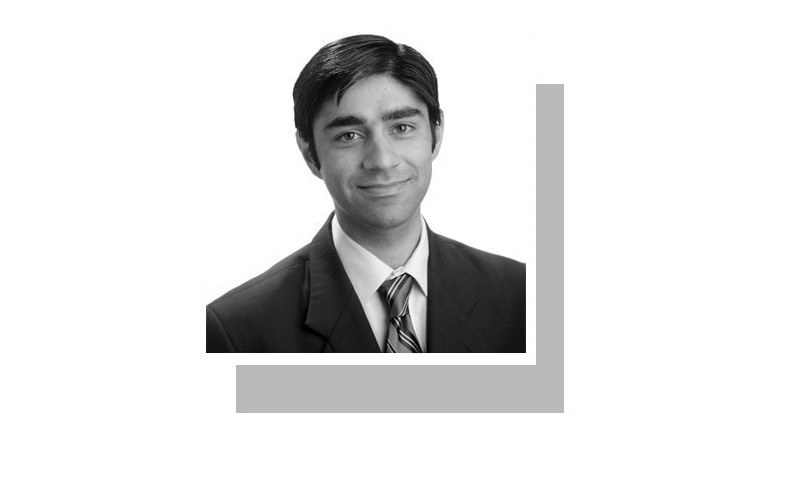
LESS than a week before the Lahore bombing on Mall road, I had spent some time talking to police officers about efforts to curb terrorism in Punjab. I walked away upbeat, but still sceptical. It wasn’t that I thought the police weren’t doing a good job. To the contrary, I felt they didn’t have the support and broader environment needed to consolidate their successes.
Much of what else the police need now requires a fundamental change in the state’s basic outlook and approach towards counterterrorism. But doing so would challenge vested institutional and political interests and is thus unlikely to happen.
At its worst, Punjab had become infested with any number of sleeper cells of Fata-based groups that could be activated at will. Not too long ago, militants had assumed so much impunity that the police did not dare target them even when their presence in specific locales was known. Purely Punjab-based outfits also attacked targets within the province with relative ease. Seminaries in southern Punjab were responsible for providing many of the foot soldiers who carried out these attacks.
‘Untouchables’ present a major challenge.
As the military cleaned up Fata, it curtailed possibilities of the communication, travel, and funding of Punjab-based militants from the tribal belt. This offered the provincial civilian law enforcement and intelligence apparatus greater manoeuvring room. Their intel operations in the past two years have been successful in eliminating sleeper cells and splintering and weakening some TTP affiliates and sectarian outfits operating in the province. They have also managed to scope out virtually all problematic madaris and keep a close watch on them, reducing their ability to provide a steady supply of militants.
Terrorist attacks that occur in Punjab now are almost exclusively planned outside the province — in places where regular police don’t operate, be it Fata, parts of Balochistan, or abroad. This lack of writ provides a crucial lifeline to militants. Not only does extending policing powers to these ‘police-less’ areas require regulatory, and sometimes, legislative changes, it also runs up against local sensitivities. An alternative fix could be establishing the previously promised federal counterterrorism force. But this requires tremendous resources and tricky negotiations with provinces to delineate powers that make the force effective without impinging on provincial prerogatives.
Solving the problem of domestic reach across the country will still leave the problem of safe havens for Pakistani terrorist outfits in neighbouring countries unaddressed. Only genuine regional coordination and joint anti-terror plans between Pakistan and its neighbours can change this. South Asia is about Machiavellian politics and policies. No one is going to do something for you without a quid pro quo. To expect Afghanistan to oblige on the TTP without a change of Pakistan’s stance on Afghan insurgents is absurd. Until then, the TTP’s ability to slip periodic attacks through Pakistan’s defences will remain.
Next, the Punjab police is hampered by the state’s triage approach to militancy. The ‘untouchables’ present a major challenge. One aspect of this is the politico-sectarian nexus. PML-N’s ultra-right allies may not be directly involved in violence but they do often morally support actors and promote mindsets that are undistinguishable from those perpetrating violence. That that they enjoy some impunity given the government’s political preferences is well known.
Likewise, anti-India groups in Punjab mostly remain outside the police’s purview. The argument that this is unrelated to domestic terrorism as these outfits do not disrupt peace internally is untenable; they not only cohabit with actors who do, but also tap the very same nurseries for recruits as domestically violent groups do. This constraint law enforcers and allows anti-state outfits to hide behind those presumed not to be part of their agenda.
The police are also directly affected by the criminal justice system’s weakness. The high rates of acquittals of accused terrorists and retributive attacks by released militants against police officers responsible for putting them in the dock has often deterred the force from pursuing due process. Research shows that extra-judicial measures by the state security apparatus backfire in the long run. Militants tend to use the state’s heavy-handedness to gain sympathy and recruits. The problem continues to persist. Little has been done to revamp the criminal justice system.
Finally, research confirms the importance of positive police-community ties for improved policing outcomes. But Pakistan’s police have done little to move from a control-oriented to service-oriented ethos. This needs a new approach, including depoliticisation of the institution so that it can act on behalf of society rather than the elite. Also needed is a citizenry that understands the importance of civic responsibility towards state institutions. Neither is realistic in the current context.
The writer is a foreign policy expert based in Washington, D.C.
Published in Dawn, February 28th, 2017











































